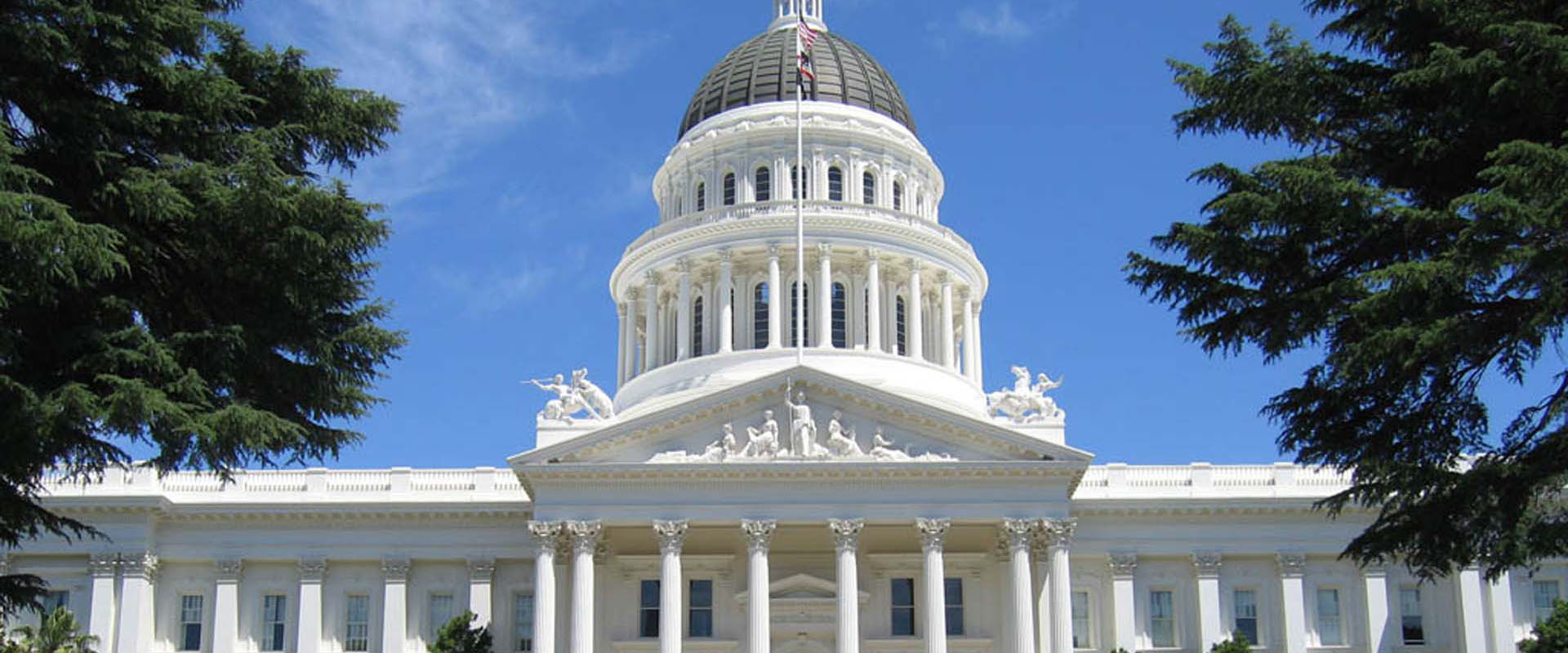New Law Requires Paid Time Off for Union Stewards and Officers

October 2018
Number 65
Effective January 1, 2019, Senate Bill (SB) 1085 requires public agency employers in California to grant, upon the request of a union, "reasonable" paid leaves of absence to employees serving as stewards or officers of the union or of any statewide or national employee organization with which the union is affiliated.
While on such leave, employees must suffer no loss of compensation or benefits and retain reinstatement rights, meaning they have the right to return to the same position and work location held before the leave, or if this is not feasible, a substantially similar position without loss of seniority, rank, or classification. Benefits while on leave also include retirement fund contributions and service credit. Unions must reimburse the employer within 30 days for all compensation paid to employees while on leave, unless negotiated otherwise.
"Steward" is defined very broadly as:
[A]ny employee designated by the exclusive representative as a representative for unit employees, whether for the unit as a whole or at a particular site, department, or other division of the employer's operations, regardless of whether the employee is referred to by the exclusive representative as a steward or by a different title.
In other words, the designation of an employee as a "steward" for purposes of this new law is left up to the union, or potentially up to the negotiation process.
The bill faced opposition from many public agency employer groups who argued that it creates a highly expansive form of protected leave for employees without consideration of the potential burdens on employers. Opponents further argued that such leave is traditionally negotiated at the bargaining table where both parties are better positioned to have their interests equally represented.
The new law also provides that employers are not liable for any acts, omissions, or injuries by employees on leave. In the event that liability arises, the union is required to indemnify the employer and hold the employer harmless.
The actual procedures for requesting and granting leave are still left up to negotiations and the mutual agreement of the employer and the union. Generally, the law as written contains significant ambiguities that will likely need to be resolved at the bargaining table, such as what is considered "reasonable."
This new State legislation may have been intended to counter the effect of the decision issued in Janus v. AFSCME earlier this year. (See 2018 Client News Brief No. 27.) In Janus, the United States Supreme Court held that public employees may not be compelled to pay fair share fees to public sector unions, as such fees violate the First Amendment. SB 1085 offers a layer of protection for labor organizing at a time when unions are feeling threatened and fear low participation rates.
Existing Law
Protected paid time off for public employees for labor-related reasons is not a new concept. The paid time off granted by SB 1085 is in addition to leave entitlements provided to employees by negotiated agreement and by the various collective bargaining laws in California. Most of the public sector collective bargaining laws in California guarantee employee representatives the right to receive reasonable periods of release time without loss of compensation when meeting and negotiating or conferring and for purposes of processing grievances. This includes, but is not limited to, the Educational Employment Relations Act (EERA) (covering K-12 and community college public school districts), the Higher Education Employer-Employee Relations Act (HEERA) (covering public institutions of higher education), the Ralph C. Dills Act (covering state government employees), and the Meyers-Milias-Brown Act (MMBA) (covering local public agencies). Going beyond these minimum release time entitlements, the Education Code also requires public school or community college districts to grant paid time off to specified represented employees to serve as elected officers or attend important organizational activities; and the MMBA provides paid time off for public agency employees to testify or appear in certain conferences, hearings, and general matters before a personnel or merit commission.
SB 1085 addresses what some may identify as an inconsistency with regard to existing statutory paid time off allowances by creating an entitlement that applies uniformly to stewards of public employee unions (however steward may be defined for the particular organization).
Next Step: Negotiation
With some exception, SB 1085 leaves the technical details up to the employer and union and does not invalidate existing negotiated agreements, which must be reopened for negotiations on the subject of this new leave entitlement upon request of the union.
Public agency employers are encouraged to review their existing collective bargaining agreements to determine if existing language conflicts or can be harmonized with SB 1085 and consider their interests in anticipation of the inevitable requests and proposals that will likely come in from the unions representing their employees.
If you have any questions about SB 1085, contact the authors of this Client News Brief or an attorney at one of our eight offices located statewide. You can also visit our website, follow us on Facebook or Twitter or download our Client News Brief App.
Number 65
Effective January 1, 2019, Senate Bill (SB) 1085 requires public agency employers in California to grant, upon the request of a union, "reasonable" paid leaves of absence to employees serving as stewards or officers of the union or of any statewide or national employee organization with which the union is affiliated.
While on such leave, employees must suffer no loss of compensation or benefits and retain reinstatement rights, meaning they have the right to return to the same position and work location held before the leave, or if this is not feasible, a substantially similar position without loss of seniority, rank, or classification. Benefits while on leave also include retirement fund contributions and service credit. Unions must reimburse the employer within 30 days for all compensation paid to employees while on leave, unless negotiated otherwise.
"Steward" is defined very broadly as:
[A]ny employee designated by the exclusive representative as a representative for unit employees, whether for the unit as a whole or at a particular site, department, or other division of the employer's operations, regardless of whether the employee is referred to by the exclusive representative as a steward or by a different title.
In other words, the designation of an employee as a "steward" for purposes of this new law is left up to the union, or potentially up to the negotiation process.
The bill faced opposition from many public agency employer groups who argued that it creates a highly expansive form of protected leave for employees without consideration of the potential burdens on employers. Opponents further argued that such leave is traditionally negotiated at the bargaining table where both parties are better positioned to have their interests equally represented.
The new law also provides that employers are not liable for any acts, omissions, or injuries by employees on leave. In the event that liability arises, the union is required to indemnify the employer and hold the employer harmless.
The actual procedures for requesting and granting leave are still left up to negotiations and the mutual agreement of the employer and the union. Generally, the law as written contains significant ambiguities that will likely need to be resolved at the bargaining table, such as what is considered "reasonable."
This new State legislation may have been intended to counter the effect of the decision issued in Janus v. AFSCME earlier this year. (See 2018 Client News Brief No. 27.) In Janus, the United States Supreme Court held that public employees may not be compelled to pay fair share fees to public sector unions, as such fees violate the First Amendment. SB 1085 offers a layer of protection for labor organizing at a time when unions are feeling threatened and fear low participation rates.
Existing Law
Protected paid time off for public employees for labor-related reasons is not a new concept. The paid time off granted by SB 1085 is in addition to leave entitlements provided to employees by negotiated agreement and by the various collective bargaining laws in California. Most of the public sector collective bargaining laws in California guarantee employee representatives the right to receive reasonable periods of release time without loss of compensation when meeting and negotiating or conferring and for purposes of processing grievances. This includes, but is not limited to, the Educational Employment Relations Act (EERA) (covering K-12 and community college public school districts), the Higher Education Employer-Employee Relations Act (HEERA) (covering public institutions of higher education), the Ralph C. Dills Act (covering state government employees), and the Meyers-Milias-Brown Act (MMBA) (covering local public agencies). Going beyond these minimum release time entitlements, the Education Code also requires public school or community college districts to grant paid time off to specified represented employees to serve as elected officers or attend important organizational activities; and the MMBA provides paid time off for public agency employees to testify or appear in certain conferences, hearings, and general matters before a personnel or merit commission.
SB 1085 addresses what some may identify as an inconsistency with regard to existing statutory paid time off allowances by creating an entitlement that applies uniformly to stewards of public employee unions (however steward may be defined for the particular organization).
Next Step: Negotiation
With some exception, SB 1085 leaves the technical details up to the employer and union and does not invalidate existing negotiated agreements, which must be reopened for negotiations on the subject of this new leave entitlement upon request of the union.
Public agency employers are encouraged to review their existing collective bargaining agreements to determine if existing language conflicts or can be harmonized with SB 1085 and consider their interests in anticipation of the inevitable requests and proposals that will likely come in from the unions representing their employees.
If you have any questions about SB 1085, contact the authors of this Client News Brief or an attorney at one of our eight offices located statewide. You can also visit our website, follow us on Facebook or Twitter or download our Client News Brief App.
As the information contained herein is necessarily general, its application to a particular set of facts and circumstances may vary. For this reason, this News Brief does not constitute legal advice. We recommend that you consult with your counsel prior to acting on the information contained herein.






